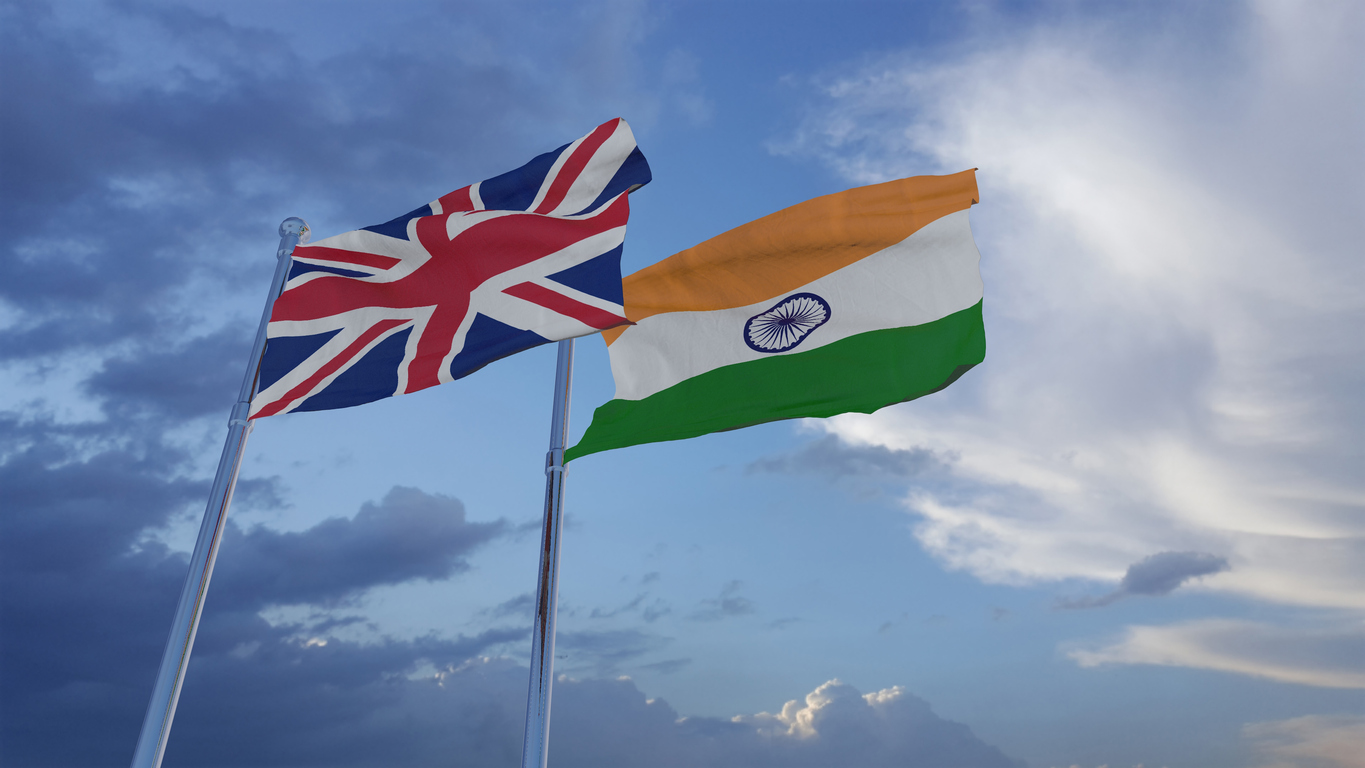
May 21, 2024
The UK may allow Indian professionals to work under specific conditions, excluding spouses
The UK seeks significant reductions in Indian tariffs on Scotch whisky, similar to the India-Australia FTA
India’s request for exemption from the UK's proposed 2027 carbon tax remains unsettled
Bilateral trade has increased significantly, with the FTA expected to further boost trade volumes, especially in services

India and the UK are making progress toward finalizing a free trade agreement (FTA) after extended negotiations that began in January 2022. Despite some remaining disagreements, two significant points are nearing resolution, indicating the strong commitment of both parties to reach a mutually beneficial agreement.
According to sources, the proposed FTA will likely include provisions allowing Indian professionals to work in the UK under specific conditions. In return, India may permit importing a limited number of high-end electric vehicles, subject to a fixed cap.
The Indian Union commerce ministry has prioritised completing the FTA within its first 100 days post-election, underscoring the importance and urgency of this agreement. Currently, 13 rounds of negotiations have taken place, with the 14th round underway since January 10. These negotiations are meticulously working towards concluding the chapter-wise texts, and the schedules for goods and services are at an advanced stage, particularly concerning mobility under the services-level discussions, ensuring a comprehensive and balanced agreement.
Recent months have seen intensified efforts, with UK officials visiting New Delhi in March and Indian delegations visiting London in April and May. Further visits are planned to maintain momentum and sign the FTA before the UK elections scheduled for January 2025.
Efforts to reach out to critical Indian officials for comments were unsuccessful, but a spokesperson for the UK’s Department for Business and Trade emphasised that any deal would be fair, balanced, and in the best interests of the British people and economy.
Critical unresolved issues include work visas for Indian professionals. The UK has tentatively agreed to offer fixed-period visas, renewable under certain conditions, though the provision for accompanying spouses may be excluded. These visas would be broader in scope than those typically granted to IT services employees.
In exchange, India may agree to a capped import of 2,000-2,500 premium electric vehicles annually at reduced duties. The UK also seeks significant reductions in Indian tariffs on products like Scotch whisky, electric vehicles, and chocolates. India has proposed a gradual decrease in duties on Scotch whisky, akin to its agreement with Australia. This could lead to increased exports of electric vehicles to India, benefiting the UK’s automotive industry.
One unresolved matter is India’s request for exemption from the UK’s proposed carbon tax, set to be introduced by 2027. This tax, which aims to incentivise businesses to reduce their carbon emissions, could affect the competitiveness of certain Indian exports to the UK. The UK has not yet agreed to exempt India from this tax, indicating its commitment to its decarbonisation goals.
Trade between India and the UK has grown significantly, from US$10.45 billion in FY22 to US$11.46 billion in FY23, and further increased by 13.26% to US$12.98 billion in FY24. The FTA is expected to enhance trade volumes, especially in services, facilitating the movement of skilled professionals. This could lead to increased investment opportunities for UK businesses in India and improved access to India’s growing consumer market.
Despite potential benefits, the impact on goods exports may be minimal since many Indian products already enter the UK with low or no tariffs. However, reducing duties could benefit Indian exports of textiles, apparel, footwear, carpets, cars, marine products, grapes, and mangoes. This could lead to increased exports of marine products to India, benefiting the UK’s marine products industry.
Indian negotiators, led by chief negotiator L. Satya Srinivas and deputy chief negotiator Darpan Jain, have been working to resolve remaining issues, including the proposed carbon tax, business mobility, and duty-free access for certain goods. They remain confident that a mutually agreeable solution will be reached soon.
The FTA has faced delays, extending over a year past the initial mid-2024 deadline, primarily due to contentious issues like professional visas, tariffs, and migration concerns—a sensitive topic in the UK post-Brexit.
Source: Mint